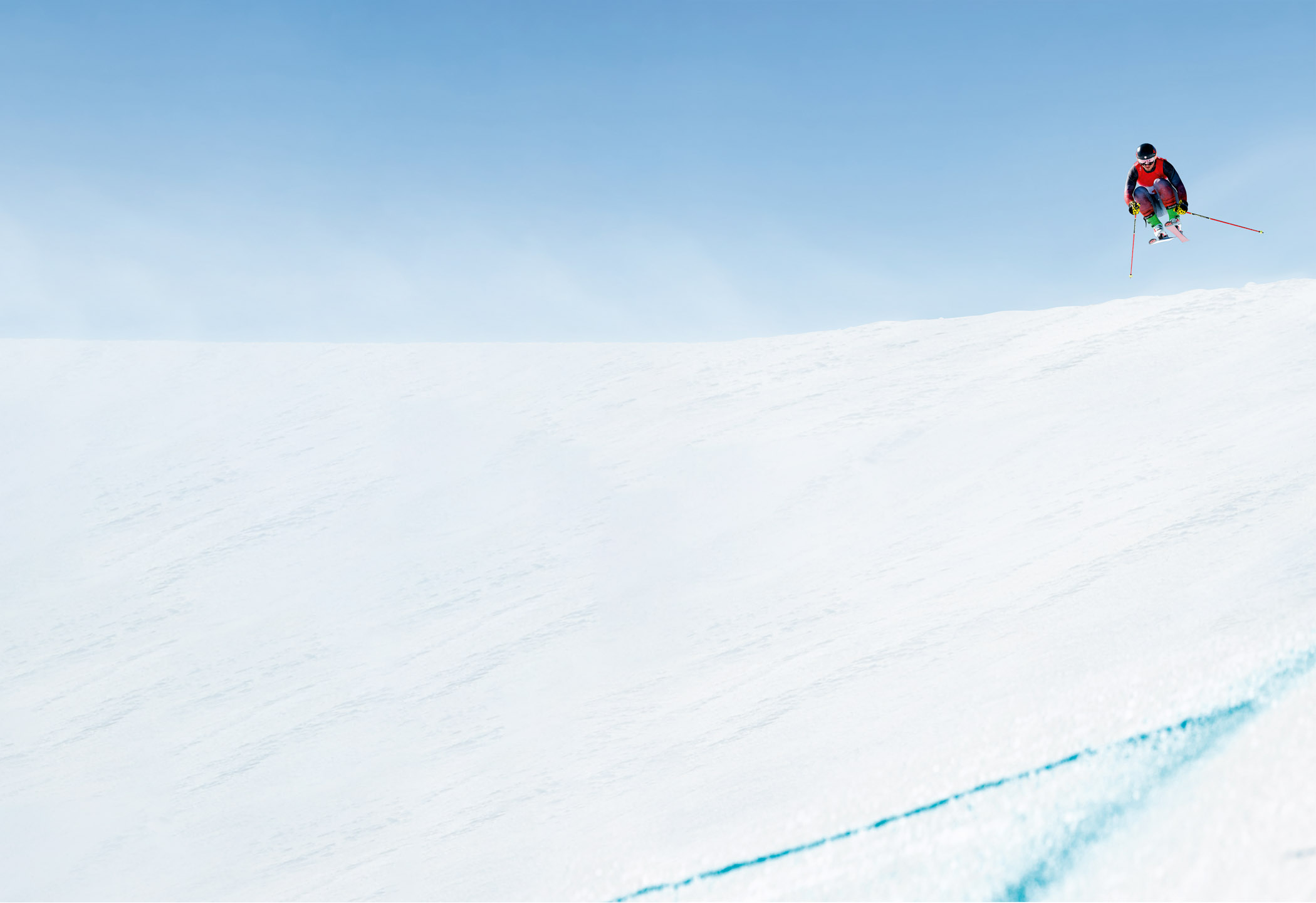Völkl – a century of shred


You may know Völkl from the days you spent shredding on your first pair of Mantras, or from their full sweep of the slopestyle podium, or from countless Alpine World Cup victories.
What you may not know is that Völkl started out as a horse-drawn carriage company. Or that they once made golf clubs. Or that this year marks their 100th year in the ski-making business.
What began as a horse-drawn wagon manufacturer, diversified into boats and sleds, and then, in 1923, ski production.
Since then, Völkl has evolved into a global ski powerhouse, solidifying its position as Germany’s largest (and last) major ski manufacturer.
In the early days, the company, originally named Vöstra, had humble beginnings. ‘Vöstra’ was a mash-up of the Völkl family name, and Straubing, the town in Lower Bavaria where the Völkl family has been based since 1975. Little did founder Georg Völkl, master cartwright, know that his venture would blossom into a century-long saga of innovation and enthusiasm for skiing.
Fast forward to the present, and Völkl remains a beacon of quality with its ‘Made in Germany’ ethos, exporting its products to over 45 countries worldwide.
“We’re proud of Völkl’s 100-year success story. The innovations with which the brand has driven the entire ski industry are, and remain, impressive,” says David Sawyer-Parker, UK Country Manager for Völkl.
“In the future, we’ll continue to create excitement in skiing with ingenious, reimagined products in our modern Straubing factory through our engineering skills and craftsmanship; we will continue to create quality and added value for our consumers while pursuing a sustainable vision.”
The journey began in 1952 when Franz Völkl Junior took the reins and modernised the company, setting the stage for ski-industry-shaking innovations. The 1960s witnessed the birth of the first ski with a sandwich configuration – a style of core construction that layers up components to enhance performance.
But it was the stripey zebra-patterned ski introduced in 1967 that really turned heads and became an international sensation. In the same year, the brand officially became ‘Völkl’, solidifying its identity.
The 1970s ushered in the era of racing dominance for Völkl, with the introduction of the legendary Race tiger in 1973.
This all-metal ski soon incorporated carbon fibre, propelling Völkl-sponsored athletes like Hanni Wenzel to world championship titles. The legacy continued through the decades, with a roster of successful athletes proudly sporting the Völkl brand.
Fast forward to 1998, and Völkl once again made fresh tracks with the V-Ski collection, setting new standards for freestyle skis and introducing their first fat ski – the Explosive. Today, the Völkl Freeski Team consistently ranks among the world’s best at FIS Freestyle World Cups, the X-Games, and the Olympics, and continues to foster young talent – most notably Scotland’s Kirsty Muir (featured below, sideways), who joined the team in 2019, and went on to become Team GB’s youngest member at the 2022 Beijing Winter Olympics, as well as a bronze medal winner at the X-Games last season.
Last season also saw Canadian professional freeskier Kye Petersen join the Völkl freeski team. Dubbed as one of the greatest skiers of his generation, Kye, now 33, is renowned for his fearless big mountain style and creativity on the mountain.
Looking ahead, Völkl is dedicated to enhancing its product portfolio, aiming to exceed the ambitious skier’s expectations. The Straubing-based manufacturer continues to invest in R&D, refining their designs with the likes of Tailored Technologies, which ensures that each ski is perfectly adapted to the skier’s needs, and the V-Werks line, with weight-shaving carbon tip and tails (check out Fall Line-favourite Deacon V-Werks – a true all-mountain slayer).
For David Sawyer-Parker, Völkl wouldn’t be the company it is today without its passionate employees maintaining its legacy: “Most of our employees are passionate skiers themselves and express this passion through their work. As a result, the joy of skiing that we want to express as a brand is embodied by our employees.”
In future, Völkl will place a significant emphasis on sustainability. Alongside local production in Straubing, the company is committed to forging ahead with a circular economy vision. One notable example is the Straubing plant’s energy supply, sourced entirely from the local hydroelectric power plant at Lake Höllenstein. This provides 100% renewable energy for all that cutting, moulding and shaping, that results in an exquisite set of planks for sliding around a mountain.


As far as the Fall Line test team goes, Völkl remains a firm favourite. Genuine all-mountain crowd pleasers, the Blaze 82 – men’s and women’s versions – both won our All-Mountain Ski of the Year award in our latest 2024 Gear Guide for their capability to charge hard and cruise easy in a single lap.
For the more serious big mountain rider we’d recommend taking aride on this season’s M6 Mantra– strong, grippy and proficient at busting through anything that lays in its path thanks to that Tailored Titanal Frame.
As the ski manufacturer celebrates a century of excellence, we say keep it up Völkl. Here’s to a hundred more years of success shredding the slopes!